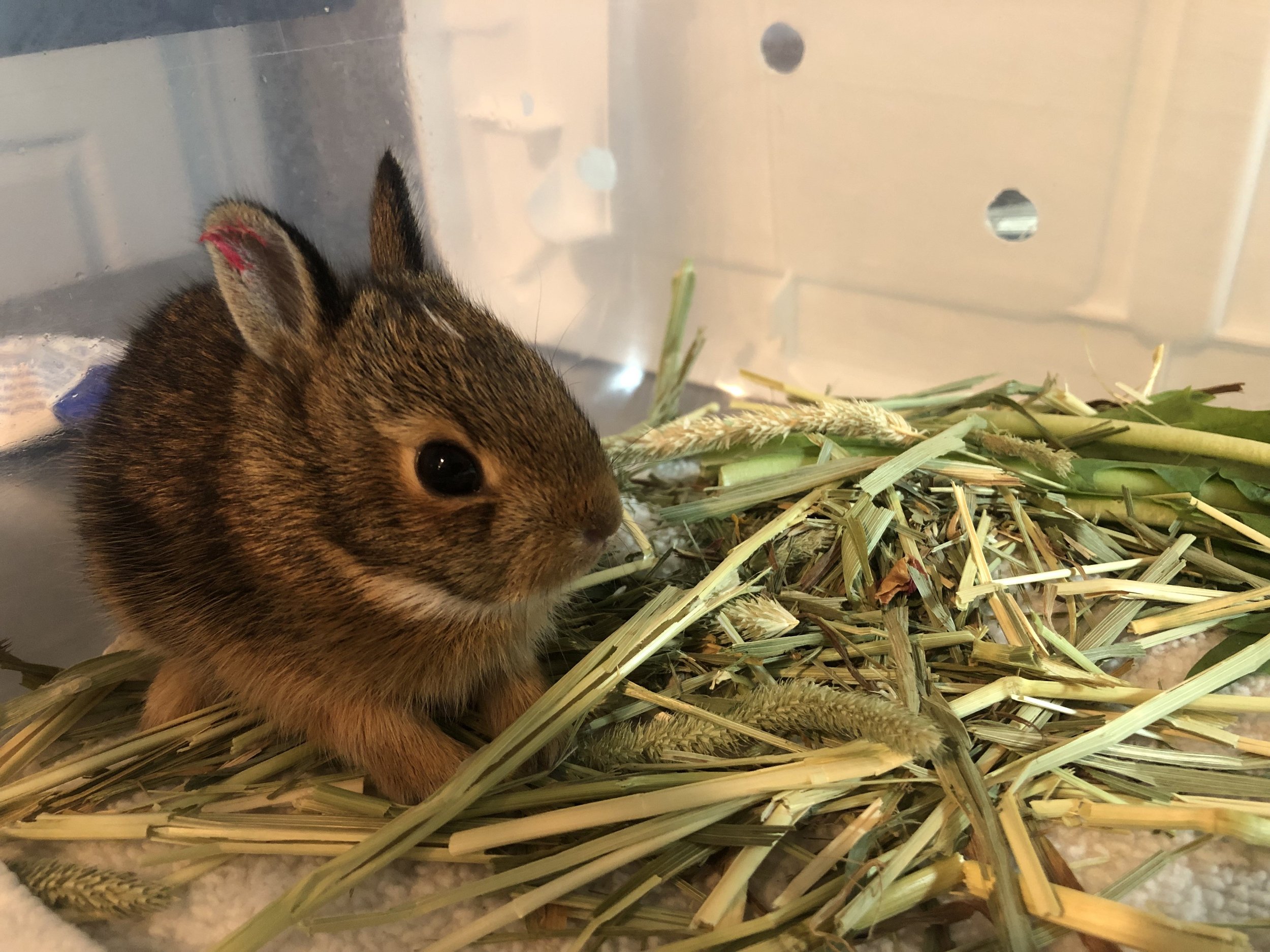
I FOUND A RABBIT
It can be difficult to know when a rabbit is in need of assistance. Young cottontail rabbits are one of the most common mammals we receive at the clinic. Often these rabbits are kidnapped by well-meaning individuals.
If You Find a Rabbit That:
Has had a dog or cat interaction
Is swarmed by flies or covered in fly eggs
Is displaying physical injuries (dragging limbs, bleeding, unable to stand/walk)
Uncoordinated and/or circling
Has been hit by car
This is an emergency. Receive immediate support by calling our clinic or contact your local wildlife rehabilitator.
If You Find a Rabbit That:
Is young but eyes are open and is hopping around
Is in a nest with other babies but no mother is around
Is frozen every time you approach
This is okay! Rabbits will freeze in order to stay hidden from predators, it is a fear response. Leave the rabbit alone and it should resume normal activity. Rabbits are weaned and leave the nest around 3 weeks of age. As long as their eyes are open and they are mobile, it is normal to see them alone and out of the nest. Mother rabbits do not stay with the nest as to not attract predators. They only return to nurse the babies a few times each day. It is normal to see the nest unattended.
Observing Baby Rabbits…
Bellies Full of Milk
If you are unsure if mom has returned, you can carefully pick up the baby bunnies and check their stomachs for a “milk-line”. Healthy baby bunnies will often be “pear-shaped” with a bright pink abdomen showing a belly full of milk!
Although they look small, rabbits wean very quickly. At around three weeks of age, these little ones set out on their own and are self-sufficient. If their eyes are open and ears are up, leave them alone.
Old Enough to Leave the Nest
There are a few ways you can protect a nest. You can flip over a laundry basket, use an upside wheelbarrow, or be creative! Just be sure that mom is able to get to the nest to nurse her young.
Protecting a Nest from Dogs
Do you still have questions after reading the information above? Receive immediate support by calling our clinic or contact your local wildlife rehabilitator.



